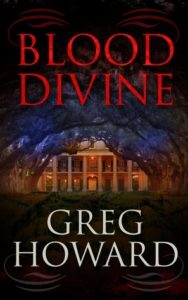Writing Your Own Story (Sort Of) by Greg Howard
/POSTED ON JANUARY 8, 2019 on School Library Journal’s Teen Librarian Toolbox
Let me start by clearly stating that THE WHISPERS is first and foremost, a work of fiction. I’m reluctant to even call it semi-autobiographical. With that said, there’s no doubt that I left a lot of me on the page. Sort of.
When I first had the idea for this story, I thought a lot about my childhood—colorful family members, small towns in South Carolina where I grew up, the woods I explored with my buddies, those early school friends and bullies who leave a lifelong, indelible mark one’s psyche and memory. But I kept circling back a central missing puzzle piece of my youth—my mother.
My mother was a conspicuous and fundamental figure in my childhood even though she was absent for most of it. Why she wasn’t around isn’t as important as the fact that she wasthere in a monumental way in the beginning—when your attachments and developmental influences take root and form who you are as a person. She was a local beauty queen beloved by everyone, a steadfast pillar of the church community, a faithful wife and nurturing mother revered by other wives and mothers for her beauty inside and out. She was practically an angelic presence temporarily on loan from God to the good citizens of Georgetown, South Carolina. Or at least that’s how I remember it.
As I grew older and wiser (sort of), the more I realized that my memories of my mother were a mix of the authentic and the imagined—some created from faded Polaroids, others from family lore, but only a scattering from actual events and real-life moments. That’s why I consider the mother in THE WHISPERS to be a tribute to my mother, but also a fully fictionalized character.
To my main character, Riley, his mother is virtually his entire world and when she goes missing, he’s not only completely lost without her, but obsessive about finding her and bringing her home. The world as Riley knows it simply doesn’t work without her. His dad grows isolated and distant, his brother retreats from the family, his grandparents are despondent, and as a mama’s boy who finds himself suddenly without a mama, Riley feels as alone and acutely isolated as I did at his age.
Growing up a self-aware queer kid the rural deep South only added to my seclusion. It was time when you didn’t talk about such things, neither at home or at school, and certainly not at church. Preachers told me I was going to hell without even realizing (I hope) the oppressive guilt and shame they were imposing on an already sensitive, fragile kid. Authority figures seemed to know without question or a second thought that I was not normal. I never found myself in television, movies, or books, but only ever saw a romantic construct of love represented between a man and a woman. Even at that young age, I felt erased from society and reality. Compound that with the absence of my mother and you have one deeply confused, broken and lonely little boy.
That was my story, but through writing THE WHISPERS, it became Riley’s.
Sprinkling the seasoning of my life into THE WHISPERS was deeply satisfying, incredibly cathartic, and at times particularly painful. From Grandma’s fruit salad recipe, to the Pentecostal corn choir, to missing family photo albums and boyhood crushes, to camping trips in the woods, childhood trauma, a country market, nightmares so vivid I remember them to this day, and even to the greatest dog in the history of dogs, Tucker—I lent it all to Riley. And it was interesting to see with those same story ingredients borrowed from my life, how drastically his path diverged from my own.
I used to think of THE WHISPERS as my own story. But the longer I’m away from it, the more I consider it Riley’s story. Those are now his adventures, hopes, pains, dreams, struggles and triumphs. But I’m delighted that my real-life memories served Riley well and found a safe and evergreen place to land. Riley’s was a more fantastical journey than mine, but imagination was important to us both. Imagination was the vehicle of our escape to an alternate world. One full of hope. And in that small yet significant way, Riley and I share this story.
When writing fiction, I don’t believe you can truly write your own story. At some point the characters hijack it and make it their own, and that’s okay. So, now I can say with definitive clarity that THE WHISPERS is my own story. Sort of.









